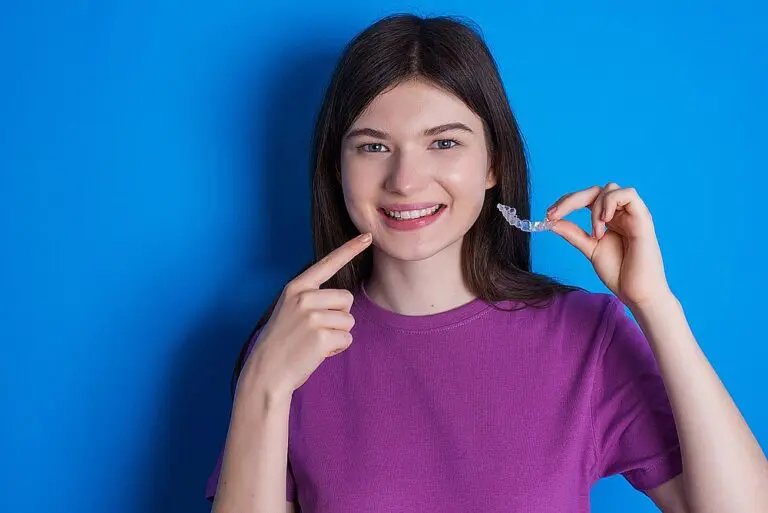Here at Freelove Orthodontics, we do more than straighten teeth. Our expert team creates the perfect smile for your face, personality, and lifestyle while improving your oral health at the same time.
We combine cutting-edge technology with innovative techniques to not only improve the cosmetic appearance of your smile but also correct any issues you have with your bite. If you’re unfamiliar with orthodontic lingo, your bite refers to the way your upper and lower teeth come together. If you have a “bad” bite, it’s called a malocclusion. This occurs when the teeth meet incorrectly or not at all.
When your teeth are in the wrong position, it can have a ripple effect, impacting your ability to chew, speak, and even sleep normally. A bad bite can also increase the amount of wear and tear on the teeth, which comes with its own set of issues. You may experience pain in your jaw, headaches, or soreness in your neck and shoulders. That’s where we come in!
Orthodontic treatment can improve the way your smile looks and functions! Dr. Cameron Freelove has years of experience creating beautifully aligned smiles for families throughout Kent and the surrounding communities. When you schedule a complimentary consultation with our office, you’ll receive a complete exam that will give us information about any bite issues you may have. To learn a bit more about what Dr. Freelove will be looking for during this visit, keep reading below.
Crowded or crooked teeth
If you have too many teeth for your dental ridge to comfortably accommodate, or teeth that fit but are crooked or twisted, it can be difficult to keep them clean. When you’re unable to brush and floss effectively, food particles and bacteria have a chance to build up, especially along the gum line. If plaque and tartar are allowed to accumulate this way, it can increase your risk of developing gum disease. If overcrowding is a problem for you, Dr. Freelove can remove one or more teeth to open up space in the mouth before using braces or aligners to straighten out the remaining teeth.
Overbite
An overbite happens when your upper teeth sit too far forward over the lower teeth. When a deep overbite is present, the lower teeth recede so far behind the upper teeth that they bite into the roof of the mouth. This is detrimental to your teeth and the health of the jaw joints, and it can also impact the shape and overall appearance of your face.
If you have a mild to moderate overbite, we can use braces or clear aligners to shift the upper teeth back towards the lower teeth. More severe overbites may be treated with orthodontics alone or may require orthodontic treatment and restorative dentistry together. Correcting an overbite will improve both the functionality of your teeth and the appearance of your smile.
Underbite
An underbite occurs when the bottom teeth protrude in front of the upper teeth. This type of bite misalignment can cause pain at the jaw joint, an unbalanced facial appearance, and uneven wear and tear on the teeth. In most of these cases, Dr. Freelove can move the upper or lower teeth on their own, or the upper and lower teeth together.
In more severe underbite cases, jaw surgery may be required in conjunction with orthodontics to correct the underbite. Once treatment is complete, it should help relieve any pain and discomfort associated with the underbite. It can also make it easier for you to smile and eat more normally. It can even improve your breathing!
Excess spacing
The technical term for excess spacing is diastema, and it’s one of the most common issues we see in our practice. This gap between the two front teeth is often caused by an overgrowth of the gum tissue that borders these teeth, but there are many reasons for it to occur in a patient. This includes teeth that don’t grow in properly, the size of the jaw, and incorrect swallowing reflexes. Our Freelove Orthodontics team can use orthodontic appliances to close any gaps in the teeth, improving the overall appearance of the smile.
Crossbite
A crossbite occurs when the lower teeth cover one or more of the upper teeth when you bite down. This irregular contact can happen in several places in the mouth, often causing headaches and jaw pain. Crossbites can also increase your risk of developing tooth decay and contribute to abnormal wear of the teeth. In more severe cases, we may see tooth fractures, receding gums, and asymmetrical growth of the jaw in children.
Orthodontic appliances like braces and Invisalign aligners are generally very effective at treating a crossbite. We can use them to align the upper and lower teeth, which often helps us achieve some degree of skeletal realignment. This is particularly effective when combined with expanders, elastics, and additional appliances.
Open bite
If you have an open bite, you’ll notice the upper and lower rows of the front teeth don’t touch or close when you smile or chew food. Many open bites come from extended thumb sucking or pacifier use in childhood, which can cause the teeth to grow into a noticeably rounded formation. Whatever the underlying reason for it, an open bite can cause difficulty in biting down. You may also experience a lisp or other speech issues.
There are many modalities to correct open bites, ranging from Invisalign aligners, braces, or a combination of braces and an orthodontic appliance known as a “crib.” This device prevents the tongue from putting pressure against the anterior teeth when swallowing. Over time, it will train you to swallow correctly. Once treatment is complete, your newly aligned bite will allow you to smile, eat, and speak with ease!
Excess overjet
When an excess overjet is present, the top front teeth will protrude far beyond the bottom front teeth. You’ve probably heard this referred to by its more common name—buck teeth! Overjets can be hereditary, but may also be caused by thumb sucking, prolonged use of a pacifier or bottle, or excessive tongue thrusting. If you have an overjet, you may struggle with speech issues, difficulty biting and chewing, and an inability to completely close your lips. Orthodontic treatment can effectively treat overjets, reducing the distance between the top and bottom teeth.

Get the best bite with Freelove Orthodontics
You deserve a smile that looks great and feels good, too. To learn more about how orthodontics can bring your smile into perfect alignment, get in touch today to schedule a FREE consultation with Dr. Freelove in our Kent office. We can’t wait to meet you!


